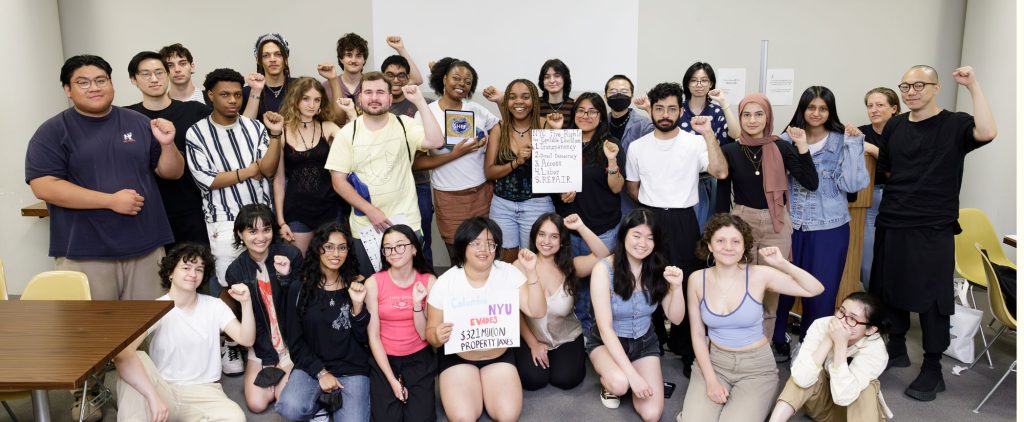Last year, Senator John Liu and Assembly Member Zohran Mamdani, both of whom represent Queens, introduced new legislation that would curtail tax protections for the city’s richest universities. If enacted, this plan could funnel more than $300 million into CUNY, which could be used for hiring more faculty and staff and fixing the crumbling infrastructure at the city’s public campuses.
The PSC supports this bill as part of the union’s broader strategy to increase revenue into CUNY from the city and state.
The package of bills in both houses that would ultimately require a change in the state constitution is called the REPAIR Act – or Repeal Egregious Property Accumulation and Invest it Right. The REPAIR Act aims to end “the real property tax exemption for those private universities in New York whose annual property taxes exceed $100 million or more, and to direct the resulting revenues to CUNY.”
ORGANIZER
In other words, if enacted, the law would tax Columbia University and New York University – which have real estate empires – like any other business and reroute that money to CUNY.
In an interview with Jacobin, Mamdani explained that “these universities have gone beyond the primary purpose of educating their students and now also serve to amass property. Their property holdings have tripled over the last 30 years. What we’re seeing time and again is these institutions using the exemption to create a market advantage when bidding on and purchasing properties across New York City.”
He continued: “To the idea that they are institutions that have given back to New York City, I think in the absence of context, you might see their charitable contributions as significant. But when you compare what Columbia and NYU have given back to New York City with the annual property tax bill of more than $320 million [that they would be paying without the exemption], you realize that the charitable contributions are a drop in the bucket compared to what they should actually be paying. We should measure their contributions in terms of what any other property owner of this scale would be paying.”
CHALLENGES AHEAD
Erin Lawson is the new coalition’s campaign director. Lawson is a New York University graduate who was active in campus organizing and with the Young Democratic Socialists of America. She has spent the summer organizing weekly trainings with students from CUNY, Columbia and NYU to get ready for a bigger campaign for the legislation in the fall. Each session has been attended by about 40 students, she said.
Lawson said that private university students see the inequity and recognize the need for taxing these universities fairly – “they often act like corporations at this point.”
She said students notice how grand and opulent places like Columbia and NYU are at the expense of working-class communities and at CUNY campuses.
“You can see it with your eyes,” Lawson said. “Even if you’re 18 and just moved to the city, you say, ‘This isn’t right, this doesn’t feel correct.’ I feel like it’s very intuitive for students.”
Lawson admitted that there are challenges ahead. The Columbia and NYU administrations are big players with lots of power, she said. But she also believes that in a time when the rich don’t pay their fair share, such legislation would seem attractive to most people who would like to see more equity in society.
“I think that getting rid of the tax exemption is something a lot of people can get behind,” she said.

Student activists at a recent organizing training for the REPAIR Act campaign. (Credit: Paul Frangipane)
Published: August 5, 2024

